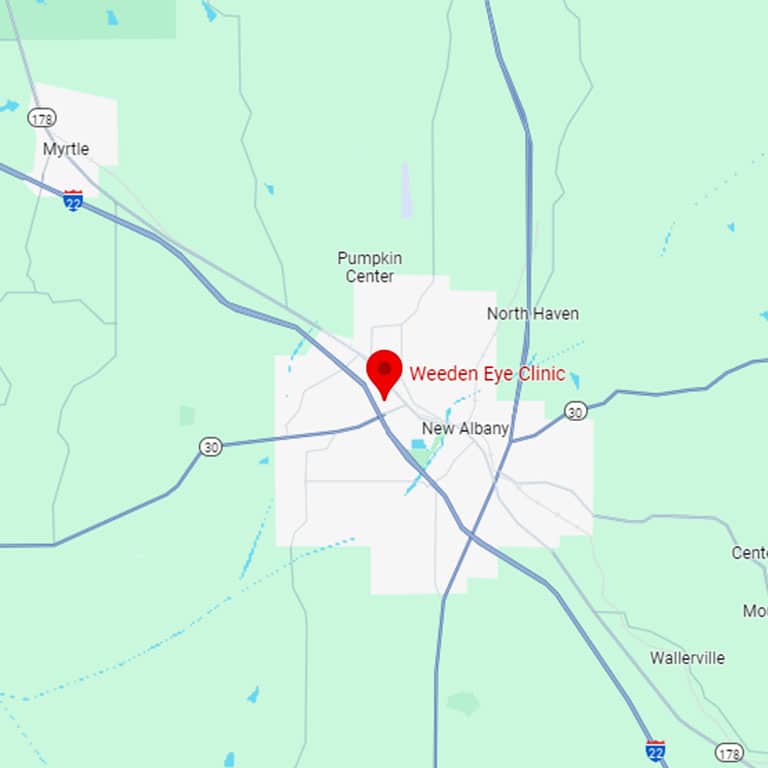Glaucoma

Glaucoma is a potentially serious eye disease that can lead to partial or full vision loss if left untreated. When you have glaucoma, it means that fluid buildup in your eyes has damaged your optic nerves. Weeden Eye Clinic treats glaucoma in New Albany, MS, by reviewing your symptoms, inspecting your eyes, and determining the best course of action.
Understanding Glaucoma
Glaucoma is the most common type of eye disease affecting the optic nerves. Typically, fluid builds up near the front of your eyes. Excess fluid creates intraocular pressure, slowly damaging the optic nerves over time. The disease usually does not cause symptoms in the early stages, so keeping up with routine eye exams is so important. When Dr. Weeden recognizes the symptoms of this disease, he will diagnose you with either closed-angle or open-angle glaucoma.
Closed-angle glaucoma
Closed-angle glaucoma is the rarer of the two types, and its symptoms can come on suddenly. Alternatively referred to as narrow-angle or angle-closure glaucoma, this type develops when the angle between the cornea and iris of your eyes is too narrow.
Closed-angle glaucoma can happen when the pupils of your eyes become too large too fast. The quick and excessive pupil dilation blocks the drainage canals in your eyes, preventing fluid from leaving the eyes and increasing eye pressure. If you experience sudden headaches or eye pain, please go to the nearest emergency room, as you could be dealing with an urgent situation.
Open-angle glaucoma
More than 90 percent of people with glaucoma have this type. Open-angle glaucoma develops when resistance and pressure build in the drainage canals of your eyes. However, your drainage canals appear to function fine from your perspective. You may not know that you even have glaucoma until several years later when you start to experience your first symptoms.
Recognizing the Symptoms of Glaucoma
Since symptoms are so gradual with open-angle glaucoma, we encourage you to note these signs of the common eye disease for future reference.
- Blind spots
- Blurry vision
- Halos around lights that are the color of a rainbow
- Headaches
- Nausea/and or vomiting
- Pain or pressure in the eyes
- Red eyes
- Tunnel vision
We also encourage you to know the risk factors for glaucoma. These include:
- Family history of glaucoma
- Farsightedness
- High blood pressure
- Hyperopia
- Myopia
- Nearsightedness
- Ongoing use of corticosteroids
- Previous eye surgery or injury
If you recognize any of these symptoms or risk factors, please schedule an eye exam at Weeden Eye Clinic. While you might not have glaucoma, we can provide a proper diagnosis and recommend the most efficient treatment for your optical issue.
Prescription eye drops are the first-line treatment method used to slow the progression of glaucoma since it is not reversible. Please contact us with additional questions about glaucoma in New Albany, MS, or to schedule an appointment.


